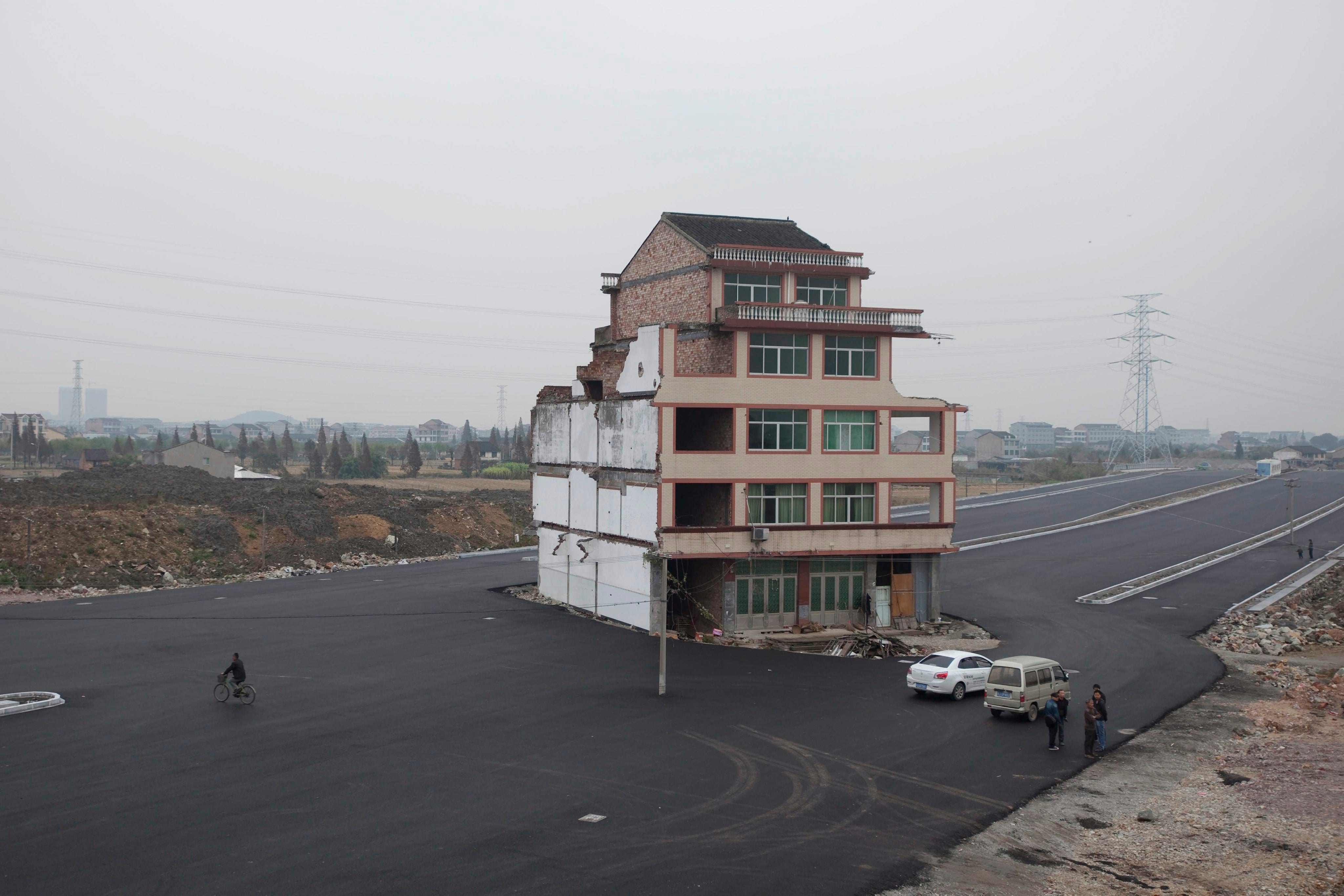A stubborn grandfather had a motorway built around his house in China after refusing to move, despite being offered £180,000 in compensation.
Huang Ping’s two-storey home in Jinxi, China, is now surrounded by a construction site with constant dust, noisy builders and vibrating walls.
He says he now regrets not taking the Chinese government’s money and fears what living in his property will be like once the expressway opens in Spring.
“If I could turn back time, I would agree to the demolition conditions they offered. Now it feels like I lost a big bet,” he said.
Pictures show the roof of the house almost level with two lanes of the motorway, which bypass the property before coming back together.
The Jinxi County Party Committee secretary previously said Huang, who lives with his 11-year-old grandson, refused to relocate because he was dissatisfied with the government’s offer.
After a long period of fruitless negotiations, the authorities designed a bypass on both sides of Huang’s house to advance the motorway’s construction.
Residents have since flocked to the area to take photos, with people dubbing Huang the “strong nail house owner” in China. A nail house is a Chinese term for an occupied home whose owners are holding out against property development.

The properties often end up surrounded by rubble or with developers going ahead and building around them.
Owners can go to extraordinary lengths to keep their properties intact, even as skyscrapers and shopping centres rise above them or roads are planned to run through them.
In 2017, a famous Shanghai nail house that blocked traffic on a major road for nearly 14 years was demolished.
The residents had refused every offer since 2003 to move, saying the compensation was insufficient. But they finally accepted £300,000 to move.







